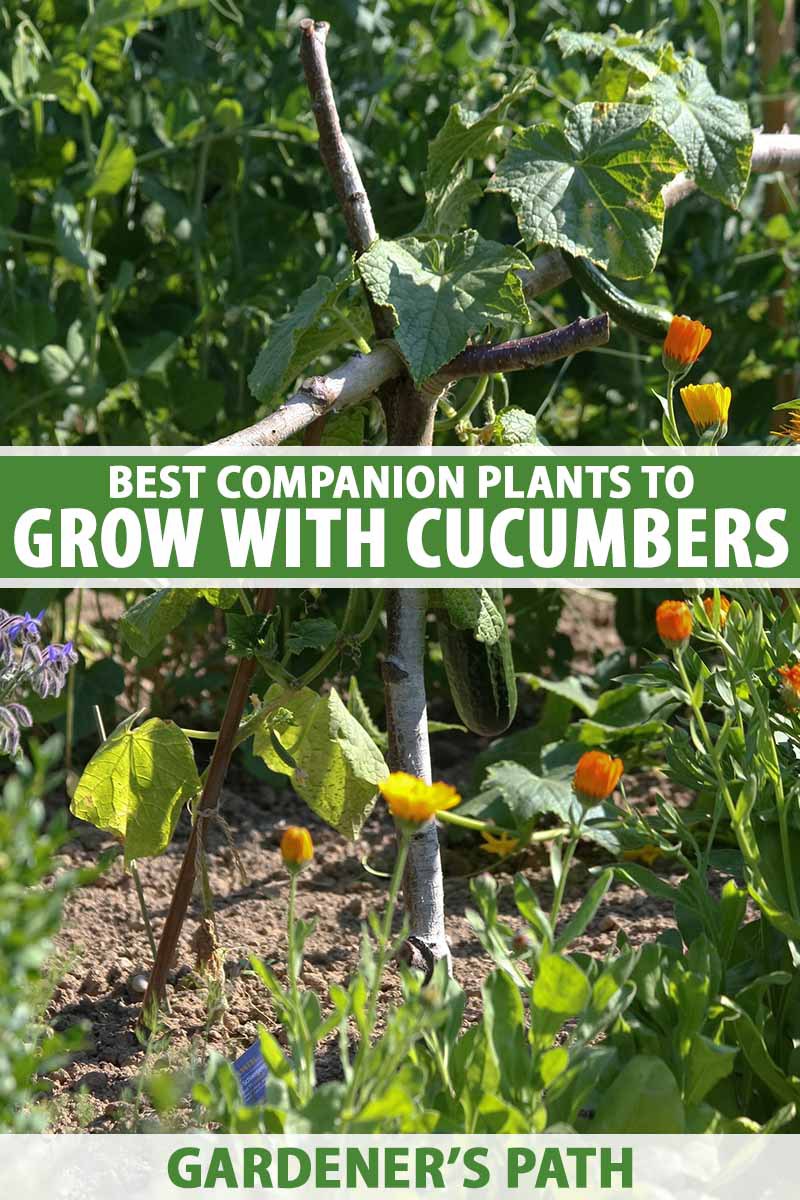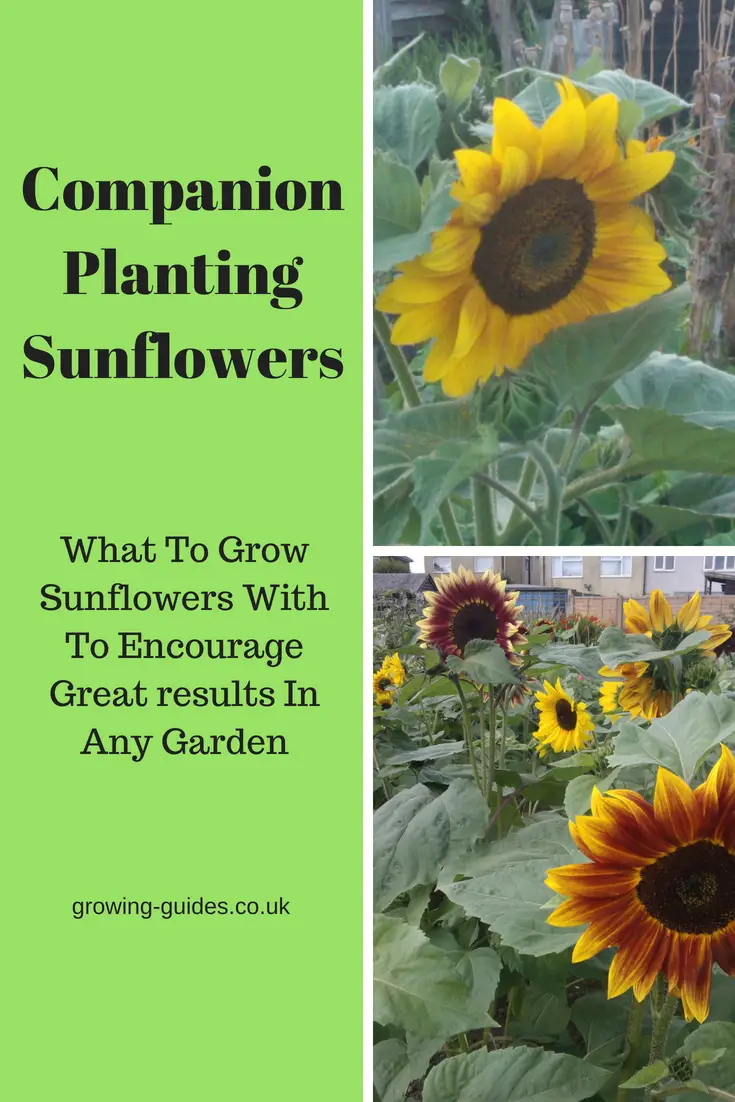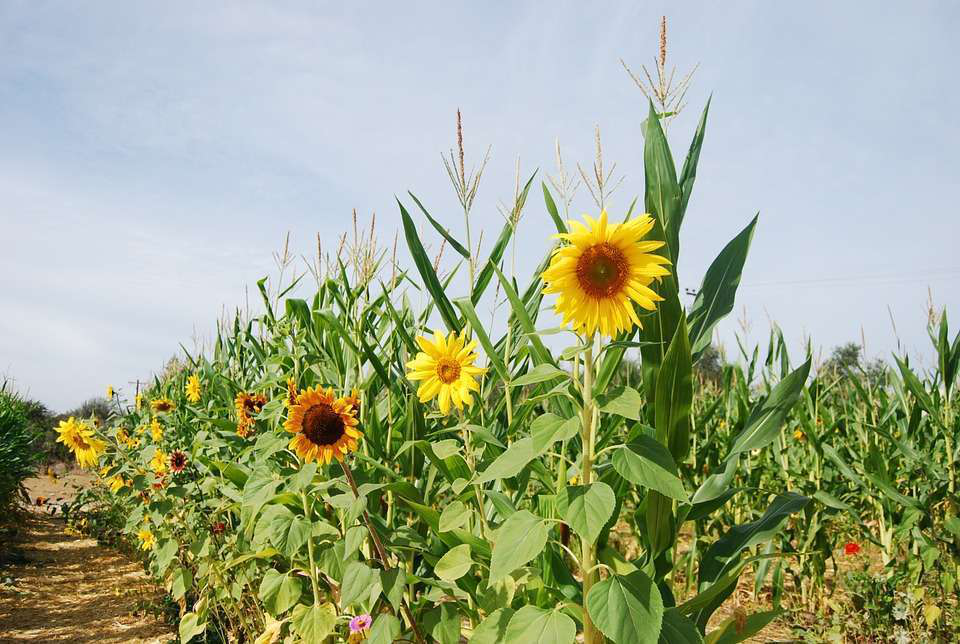Sunflowers And Vegetables: The Perfect Pair
Sunflowers and vegetables are two of the most popular plants in gardens, and for good reason. They're both beautiful, versatile, and easy to grow. But did you know that they can also be great companions for each other?
In this blog post, we'll explore the benefits of planting sunflowers and vegetables together. We'll also discuss some of the best combinations to try in your own garden.
Benefits of Planting Sunflowers and Vegetables Together
There are several reasons why planting sunflowers and vegetables together can be beneficial. Here are a few of the most important:
- Attract pollinators: Sunflowers are a magnet for pollinators like bees and butterflies. These beneficial insects help to pollinate your vegetables, which can lead to a better harvest.
- Provide shade: Sunflowers can provide shade for your vegetables, which can help to protect them from the hot sun. This is especially important for vegetables that are sensitive to heat, such as tomatoes and peppers.
- Improve soil quality: Sunflowers are deep-rooted plants that help to break up compacted soil. This can improve the drainage and aeration of the soil, which can benefit your vegetables.
- Distract pests: Sunflowers can also help to distract pests from your vegetables. Aphids, for example, are attracted to the sap of sunflowers. By planting sunflowers near your vegetables, you can help to lure these pests away from your more vulnerable crops.
Best Combinations of Sunflowers and Vegetables
There are many different combinations of sunflowers and vegetables that you can try in your garden. Here are a few of the most popular:
- Sunflowers and cucumbers: Cucumbers are a vining vegetable that can benefit from the support of sunflowers. The sunflowers will also provide shade for the cucumbers, which can help to prevent them from becoming sunburned.
- Sunflowers and melons: Melons are another vining vegetable that can benefit from the support of sunflowers. The sunflowers will also provide shade for the melons, which can help to keep them cool and prevent them from developing powdery mildew.
- Sunflowers and squash: Squash is a heavy feeder, and sunflowers can help to improve the nitrogen content of the soil. The sunflowers will also provide shade for the squash, which can help to prevent it from developing blossom end rot.
- Sunflowers and tomatoes: Tomatoes are a warm-season crop that can benefit from the shade of sunflowers. The sunflowers will also help to attract pollinators to the tomatoes, which can lead to a better harvest.
- Sunflowers and beans: Beans are a nitrogen-fixing plant, and sunflowers can benefit from the increased nitrogen content of the soil. The sunflowers will also provide shade for the beans, which can help to prevent them from developing root rot.
Conclusion
As you can see, there are many benefits to planting sunflowers and vegetables together. If you're looking for ways to improve your garden, consider giving this combination a try.
Sunflowers are beautiful and versatile plants that can be grown in a variety of gardens. But did you know that they can also be used to attract beneficial insects and deter pests? That's right, sunflowers can be great companion plants for other vegetables.
Some of the best sunflower companion vegetables include:
- Lettuce: Lettuce enjoys some shade, especially in the heat of summer. Sunflowers can provide the perfect amount of shade for lettuce, while also attracting pollinators that help to fertilize the lettuce plants. Garden Wiki
- Peas: Peas are nitrogen-fixing plants, which means they can help to improve the soil quality for other plants. They also don't need a lot of space, so they can be planted around the base of sunflowers. Garden Wiki
- Cucumbers: Cucumbers and sunflowers are both tall plants, so they can be planted together to help create a natural trellis. The sunflowers will provide the cucumbers with some shade, while the cucumbers will help to keep the sunflowers' soil moist. Garden Wiki
- Carrots: Sunflowers can help to attract beneficial insects that help to control pests that can damage carrot plants. The sunflowers' tall stalks will also help to shade the carrot plants from the hot sun. Garden Wiki
If you're looking for ways to improve your garden's productivity and attract beneficial insects, consider planting sunflowers as companion plants. For more information about sunflower companion vegetables, visit Garden Wiki.
FAQ of sunflower companion vegetables
Question 1: What are the best companion vegetables for sunflowers?
Answer: Some of the best companion vegetables for sunflowers include:
- Basil: Basil helps to deter pests and attract pollinators. It also improves the taste of tomatoes and peppers.
- Beans: Beans are nitrogen-fixing plants, which means they add nitrogen to the soil. This can benefit sunflowers, which don't require a lot of fertilizer.
- Cucumbers: Cucumbers benefit from the shade that sunflowers provide. They also help to suppress weeds.
- Lettuce: Lettuce enjoys some shade, especially in the heat of summer. It also helps to suppress weeds.
- Peas: Peas are another nitrogen-fixing plant that can benefit sunflowers. They also help to suppress weeds.
Question 2: What vegetables should I avoid planting near sunflowers?
Answer: Some vegetables that you should avoid planting near sunflowers include:
- Allium vegetables: This includes onions, garlic, and chives. These vegetables can deter pollinators, which can hurt sunflowers.
- Cabbage family vegetables: This includes broccoli, cauliflower, Brussels sprouts, and cabbage. These vegetables can attract pests that can also harm sunflowers.
- Potatoes: Potatoes can attract the same pests as sunflowers, so it's best to avoid planting them near each other.
Question 3: How do sunflowers benefit from companion planting?
Answer: Companion planting is the practice of planting different types of plants together in order to benefit each other. Sunflowers can benefit from companion planting in a number of ways, including:
- Attracting beneficial insects: Sunflowers attract a variety of beneficial insects, such as bees and butterflies. These insects help to pollinate sunflowers, which can lead to a better harvest.
- Decreasing the risk of pests: Some companion plants, such as basil and marigolds, can help to deter pests from sunflowers.
- Improving soil quality: Some companion plants, such as beans and peas, are nitrogen-fixing plants. This means they add nitrogen to the soil, which can benefit sunflowers.
- Suppressing weeds: Some companion plants, such as lettuce and cucumbers, can help to suppress weeds. This can free up your time so you can focus on other tasks in your garden.
Question 4: How far apart should I plant sunflowers and their companion vegetables?
Answer: The distance between sunflowers and their companion vegetables will vary depending on the type of plants you are planting. However, as a general rule of thumb, you should plant sunflowers at least 2 feet apart and their companion vegetables at least 1 foot apart. This will give each plant enough space to grow and thrive.
Question 5: What are some other benefits of companion planting?
Answer: In addition to the benefits mentioned above, companion planting can also:
- Increase crop yields: Companion planting can help to increase crop yields by improving pollination, deterring pests, and suppressing weeds.
- Improve soil health: Companion planting can help to improve soil health by adding nutrients, breaking down organic matter, and suppressing soil-borne diseases.
- Reduce the need for pesticides: Companion planting can help to reduce the need for pesticides by attracting beneficial insects and deterring pests.
- Save time and money: Companion planting can save you time and money by reducing the amount of weeding and pest control you need to do.
Image of sunflower companion vegetables
- Sunflowers and tomatoes. Sunflowers provide support for tomatoes, which can be trellised or staked. They also attract pollinators, which help to pollinate the tomatoes.

- Sunflowers and cucumbers. Sunflowers help to protect cucumbers from pests and diseases. They also provide shade for the cucumbers, which can help to prevent them from getting sunburned.

- Sunflowers and beans. Sunflowers fix nitrogen in the soil, which benefits the beans. Beans, in turn, help to suppress weeds around the sunflowers.

- Sunflowers and squash. Sunflowers help to deter squash bugs, which are a common pest of squash plants. They also provide shade for the squash, which can help to prevent it from getting powdery mildew.

- Sunflowers and corn. Sunflowers help to attract pollinators, which help to pollinate the corn. They also provide shade for the corn, which can help to prevent it from getting sunburned.

Post a Comment for "Sunflowers And Vegetables: The Perfect Pair"